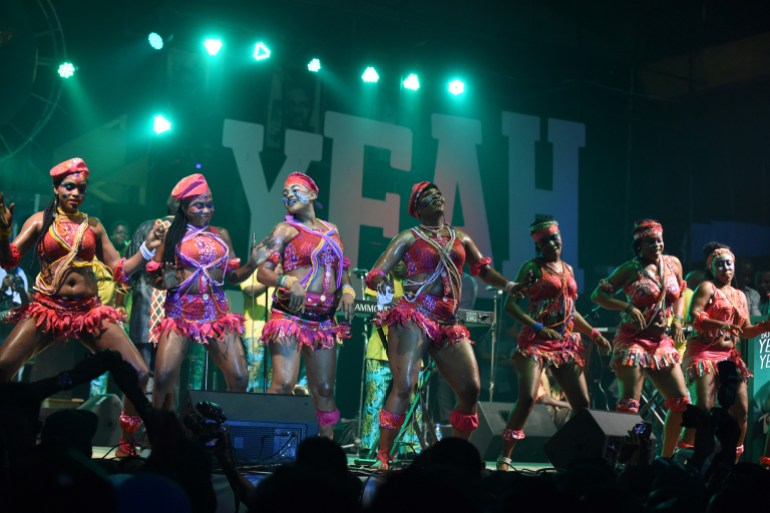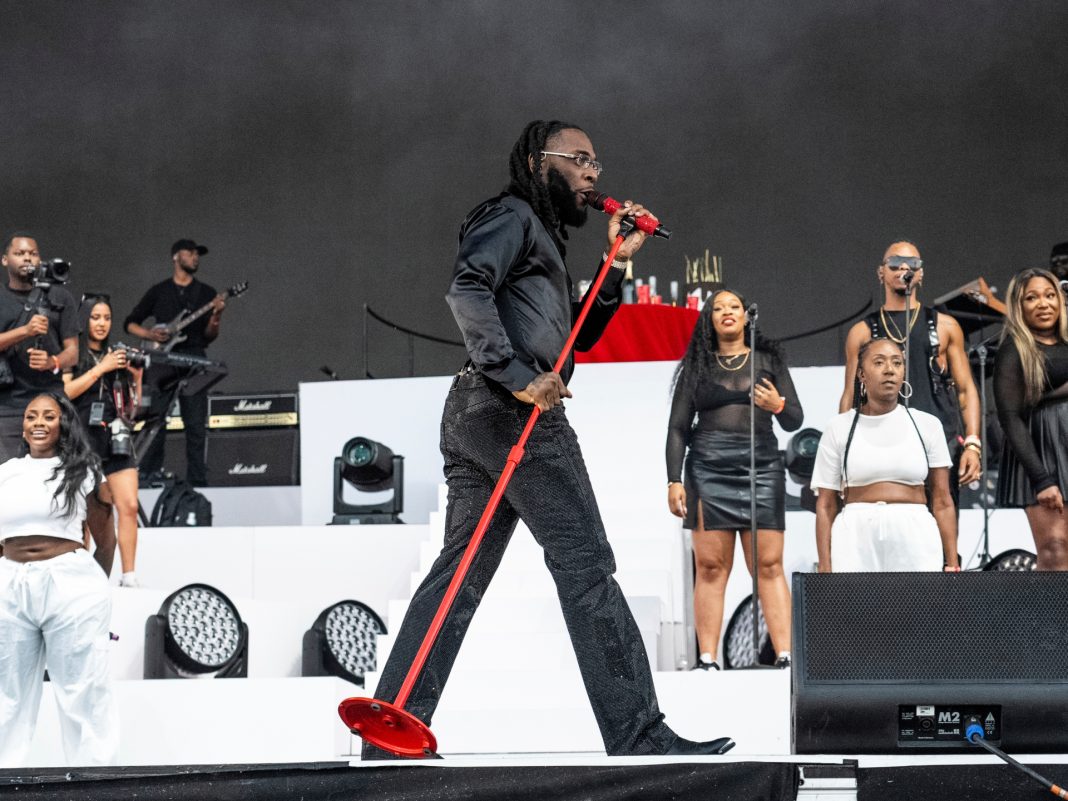Lagos, Nigeria – Chinenye Ikechukwu’s Decembers are usually dotted with concerts, parties, and restaurant and beach outings with friends. But this year, the 27-year-old resident of Yaba in Lagos has stayed mostly at home due to the economic downturn plaguing Africa’s largest economy.
The rising cost of living and soaring inflation, which stands at 28 percent, forced her to draw up a preference list. What was most painful to strike out was Detty December, as Nigeria’s end-of-year celebrations are known. They feature a rolling succession of concerts, parties and other festivities.
“The point is that Detty December this year is very tough, and this is the worst recession I have ever seen. These days, you come back to something that you saw just the day before, and it has an increased price,” she told Al Jazeera. “And there is nothing to do about it.”
Lagos, the nerve centre of Nigeria’s entertainment scene, puts on hundreds, if not thousands, of events every December. This extravaganza also goes on in towns and villages far from Lagos but at a much slower pace.
These concerts are a big contributor to the music industry’s more than $2bn in annual revenue.
“What has happened over the last decade and a half is that a lot of brand and artists have created this modern experience that basically builds on the culture of people gathering to have fun and enjoy themselves,” said Ikemesit Effiong, a partner at SBM Intelligence, a Lagos-based sociopolitical risk consultancy firm.
This year, the fun has been muted.

Hard times
Since his inauguration in May, President Bola Tinubu has been on a mission to improve the economy, but his policies have hardly done so. Floating the currency and removing fuel subsidies have triggered record inflation in a country where 133 million people live in poverty.
Disposable income has declined for many like Ikechukwu who have now opted to “cook rice at home”, Nigerian speak for staying away from the party circuit.
After realising she’d be unable to join the yuletide frenzy, Ikechukwu decided to host a Christmas party at home for her friends, but the price of basic goods at the market made her cancel that plan.
From April to May, the cost of making a pot of jollof rice increased by almost 30 percent. By December, it had almost doubled as the minimum wage barely changed all year.
“The prices of food stuff and cost of catering … is next to impossible. I haven’t even looked at anything that is happening since,” she said.
Analysts like Effiong said inflation has eroded the incomes of every demographic in the country, especially in December.
“There is always an extra inflationary top-up in December because a lot of service providers tend to go home, so prices generally go up in December even in the best of times,” he told Al Jazeera.
Concerts have been a recurrent fixture in Odunayo Odedoyin’s December plans for the past three years. Last year, she attended several shows, including gigs by CKay and Runtown, but she is unable to continue that streak this year.
“Ticket prices are even scary now,” the 25-year-old said.
The minimum amount for a ticket to a major show goes for about 20,000 nairas ($22). Experts said show organisers are only responding to the rising cost of securing venues and logistics services.
Her plans were not only impeded by ticket prices but also by the rising cost of transportation. Charges on ride-hailing apps like Uber and Bolt have doubled or tripled in some cases. Thirty-minute rides that previously cost about 4,000 naira ($4.42) now go for about 12,000 naira ($13.27) or more.
“I planned to party hard, but Bolt ride prices are now crazy, making it hard to move around like I had planned,” she said.
Reduced show traffic
This year, the number of concerts in Lagos has drastically fallen. Organisers cancelled some before the start of the December festivities. For those that are still being held, the economic downturn has affected their attendance, said Bizzle Osikoya, co-founder of The Plug, a Lagos-based entertainment company.
“A lot of shows are not really packed like they usually are because people can’t really afford it. Some people now prefer to go to free or smaller events,” he told Al Jazeera. “More people are looking to go to end-of-the-year parties of big corporations where they don’t have to buy tickets.”
Osikoya’s company decided to make its Island Block Party affordable with the cheapest ticket set at 2,000 naira ($2.21), so partygoers can still attend the shows despite the cash crunch.
“Our shows have not been affected because our show prices are not high. We make it so that the fans can come and enjoy themselves. … Our production might not be as expensive as the other ones, so that is why our show is not that expensive,” he said.
According to a report in November by SBM Intelligence, Nigerians spend 97 percent of their income on food, leaving a tiny margin for other essentials like transport, healthcare and even shelter. Little or nothing goes to entertainment.
“Detty December is becoming a byword for either being economically secure or being financially irresponsible because it is expensive to [partake in] now. That really sums up where Nigeria is now, which is not a very good place,” Effiong said.
This, he added, shows that structural weaknesses in Nigeria’s economy are manifesting themselves in the services sector.
“The services sector has traditionally been the engine of growth at a time when many service providers need financial support. It is really concerning that the only economic sunshine we have had for a while now is beginining to come under pressure,” Effiong said.
In Lagos, despite having a quiet December, Ikechukwu is still worried about what will come in January, which Nigerians jokingly say extends for 60 days due to the limited spending capacity after the festive expenses of December.
“I worry about this because what it tells me is that our economy is in shambles and there is nothing to be done about it,” Ikechukwu said. “From all indications, 2024 is going to be worse.”







